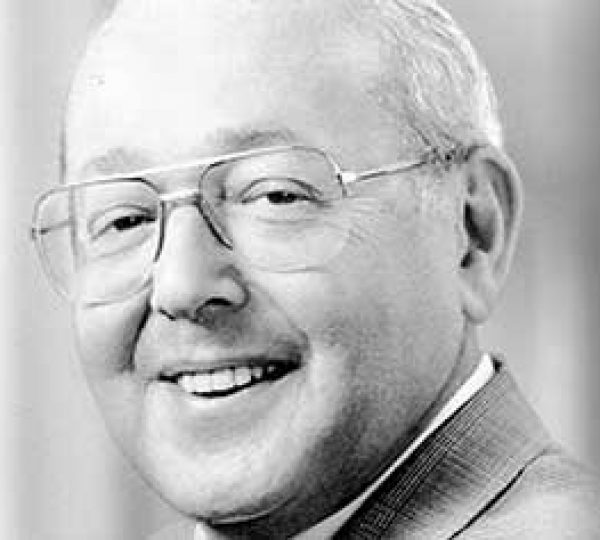By the time Sy Syms died in 2009, the estate trust he set up had been amended several times and ultimately made no provision for his son, Richard.
Richard Syms, a real estate broker and Waccabuc resident, hired Bashian & Farber LLP, a White Plains law firm, to challenge his father”™s will in 2010. Four years later, the firm dropped the case and sued Syms over unpaid legal fees.
On Feb. 1, four state Supreme Court appellate justices ruled that Richard Syms is liable for the legal fees, but Bashian & Farber was not entitled to summary judgment for damages.
 Sy Syms, founder of Syms Corp., a discount clothing chain that had its headquarters in Secaucus, New Jersey, died after a long period of cognitive decline, according to Bashian & Farber”™s lawsuit against his son. Richard believed that his sister, Marcy, executrix of the estate, had exerted undue influence over their father. He wanted his lawyers to contest the will and force his sister to return assets she had transferred to herself while their father was still alive.
Sy Syms, founder of Syms Corp., a discount clothing chain that had its headquarters in Secaucus, New Jersey, died after a long period of cognitive decline, according to Bashian & Farber”™s lawsuit against his son. Richard believed that his sister, Marcy, executrix of the estate, had exerted undue influence over their father. He wanted his lawyers to contest the will and force his sister to return assets she had transferred to herself while their father was still alive.
Marcy Syms, the oldest child, headed Syms Corp. for 15 years until the company, which had acquired the bankrupt Filene”™s Basement department store chain in 2009, itself declared bankruptcy two years later and went out of business in 2012.
She is president of TPD Group LLC, a succession planning company. Her 2002 book, “Mind Your Own Business: And Keep it in the Family,” discusses ways to cope with sibling rivalries and help smooth the transition of family-owned businesses from one generation to another.
The founder”™s daughter also is president of the Sy Syms Foundation in Fort Lee, New Jersey, a supporter of medical, educational and cultural causes, including public television, public radio and the Sy Syms School of Business at Yeshiva University in Manhattan.
She did not respond to a request for comment.
In 2014, Bashian & Farber sued Richard Syms and his wife, Ineva, in state Supreme Court in White Plains for breach of contract and fraud over $329,069 in unpaid fees.
Syms had confirmed numerous times that billing statements were accurate, according to the lawsuit, and had said he would pay the fees with the proceeds from a real estate deal. Instead, the lawsuit says, the couple sold a property for $1.2 million and transferred six more to one another but did not pay the legal bill.
Syms responded that he transferred properties for estate planning purposes after suffering a heart attack. He paid about $150,000 in fees, his attorney said, but Syms believed the law firm had inflated its fees by $120,000 and had accomplished very little. Much of the work was done by a novice lawyer, for instance, whose services were initially billed at $175 an hour and then, without explanation or notification, $300 an hour.
Syms”™ new attorney, Michael S. Haber, describes Bashian & Farber”™s tactics as extremely aggressive. The law firm “routinely sought extraordinary remedies,” he says in a court document, including six unsuccessful requests for sanctions against Syms and himself.
For example, Bashian & Farber accused Syms and Haber of misrepresenting Syms”™ health to bolster their position that the real estate transactions were motivated only by estate planning. Syms was actually diagnosed with hypertrophic cardiomyopathy, an abnormal thickening of the heart muscle, the law firm discovered, and not a heart attack.
Regardless of the precise diagnosis, Haber said, Syms underwent open heart surgery and he had lost a brother at age 45 and a sister at 37 to heart attacks. “Any emergency cardiac surgery,” Haber said in a memorandum opposing Bashian & Farber”™s request for sanctions, “could well cause a person to visit the issue of his own mortality” and would explain why he focused on estate planning.
Supreme Court Justice Charles D. Wood denied the law firm”™s request for sanctions.
In ruling on other issues last month, the appellate court said Wood should have granted Bashian & Farber summary judgement on the issue of liability for the legal fees.
Syms received invoices and agreed to pay them, the appellate court said. The law firm does not have to “show the reasonableness of the retainer agreement or its legal services.”
But Bashian & Farber had conceded errors in their calculations, the court said, so it was not entitled to summary judgement for damages. The case was sent back to the trial court to determine damages.
The appellate court essentially split the issue down the middle, Haber said in a telephone interview. Syms has to pay legal fees but there is still a triable issue as to how much he should pay.
Meanwhile, the underlying dispute over the Sy Syms estate continues in New York City surrogate court.
















